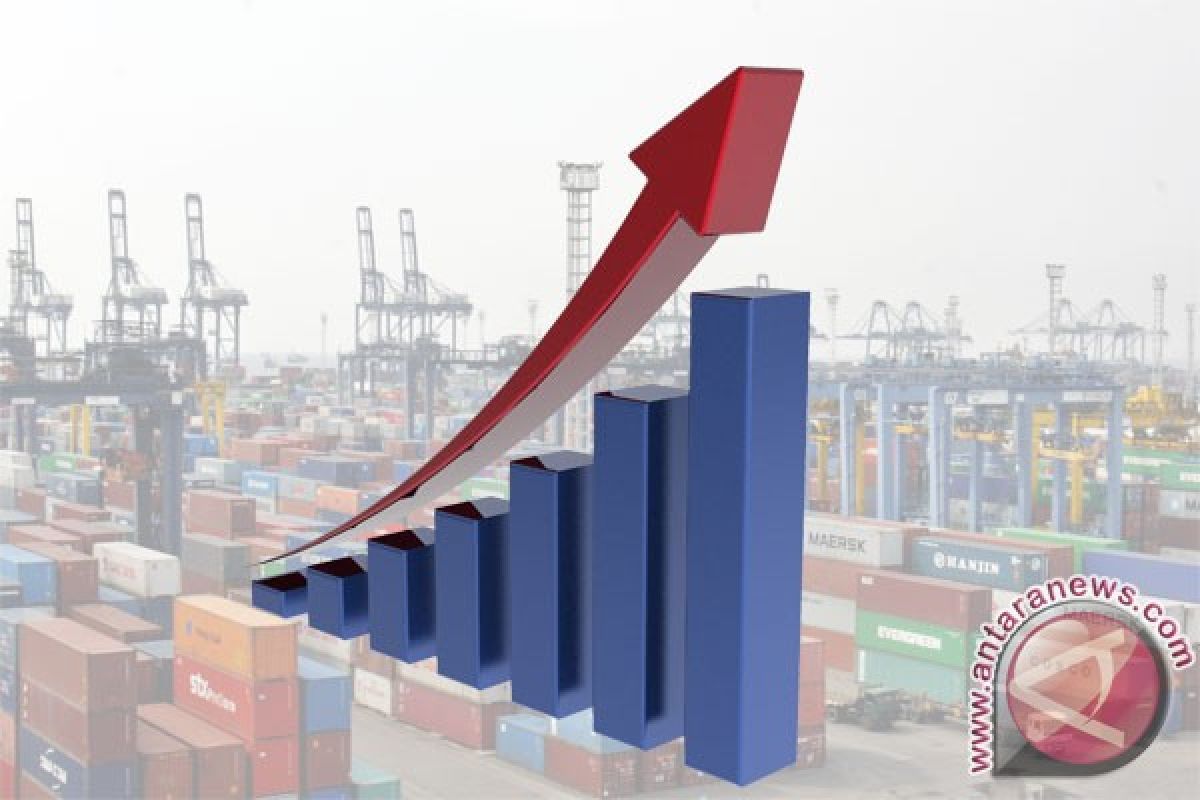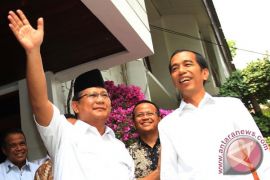"I hoped the growth would reach 6.3 percent."Jakarta (ANTARA News) - The Indonesian economy grew at a slower pace in the third quarter than in the previous quarter, but the growth is expected to return to the right track in the fourth quarter on strong investment and consumption.
The nation`s gross domestic product (GDP) grew 6.17 percent on-year in the quarter ending September 30, 2012, down from 6.37 percent in the previous quarter due to declining exports and low government spending. The growth was the lowest since the first quarter of 2010.
Though low government spending had no significant impact, declining exports have become a cause for concern.
Coordinating Minister for Economic Affairs Hatta Radjasa said he was disappointed with the government`s low capital spending, which until September reached Rp62 trillion or 36.8 percent of the ceiling of Rp168.7 trillion set in the revised 2012 state budget.
"Frankly speaking, I am not happy with the government`s expenditure performance. This should not have happened," he said.
According to Hatta, the government`s capital spending as per September 30, 2012 should have positively contributed to the economic growth.
"I hoped the growth would reach 6.3 percent. I thought the government`s capital spending in the third quarter would remain positive," he said.
According to the Directorate General of State Treasury at the Finance Ministry, state spending in the year to October 31, 2012 reached Rp1,072.6 trillion or 69.3 percent of the ceiling of Rp1,548.3 trillion set in the revised 2012 state budget.
Overall, the central government`s spending reached Rp681.5 trillion or 63.7 percent of the ceiling of Rp1,069.5 trillion and budget funds transferred to regions reached Rp391.2 trillion or 81.7 percent of the ceiling of Rp478.8 trillion.
Personnel spending reached Rp168.6 trillion or 79.4 percent of the ceiling of Rp212.3 trillion, spending on goods was Rp86.2 trillion or 46.2 percent of the ceiling of Rp186.6 trillion, and capital spending was Rp73.7 trillion, or 43.7 percent of the ceiling of Rp168.7 trillion.
Meanwhile, energy subsidies totaled Rp183.9 trillion or 90.9 percent of the ceiling of Rp202.4 trillion consisting of fuel subsidies worth Rp120 trillion or 87.3 percent of the ceiling of Rp137.4 trillion and electricity subsidies were Rp63.9 trillion or 98.4 percent of the ceiling Rp65 trillion.
Meanwhile, Director General of State Treasury at the Finance Ministry Agus Suprijanto said lengthy procedures when issuing tenders for the procurement of goods and services remains an obstacle at each state ministry and institute.
He added that the simplification of the tender process through the revision of Presidential Regulation No. 54/2010, which was later revised through Presidential Regulation No. 70/2012, was completed only in the third quarter of 2012 and it has had no significant impact.
Further, chief economist of the Danareksa Research Institute Purbaya Yudhi Sadewa said the government`s low spending in the past five years has been an obstacle to the nation`s economic growth.
"This has happened during the past five years. It seems it was hard to increase it," he said.
He said low spending has led to the lower-than-expected economic growth in the third quarter. If this continues it will have an impact on fourth-quarter growth.
"Unless the government makes a super hard effort, the economy will grow at a slower pace in the fourth quarter," he said.
He said government consumption should have contributed to the growth, in addition to domestic consumption, when exports slow down due to financial woes in Europe.
"Don`t let this continue to happen despite the difficult situation in pushing growth because roads and bridges are not built and, accordingly, the engine of growth stagnates," he said.
He categorically reputed speculation that the lengthy rules of goods and services procurement and lateness in the preparation of terms of reference and budget plans are the cause of slow budget disbursements.
The main cause is that budget funds at a number of ministries and state institutes could not be disbursed due to stalled deliberations on their work plans at the House of Representatives, he said.
"I am suspicious this is not the result of presidential regulations on the procurement of goods and services and lateness in preparation of terms of reference and budget plans because the President, himself, has stated that the budget plan, which has already been approved, must no longer be subject to deliberations," he said.
After all, Hatta said he thanked God household consumption and investment growth remains positive amidst global financial woes.
He predicted Indonesia will remain attractive to foreign investors in the future. Investment rose 10.02 percent in the third quarter from one year earlier. Private consumption expanded at the strongest pace since the beginning of 2009 to 5.68 percent in the third quarter.
Bank Indonesia Governor Darmin Nasution said he was optimistic the GDP would meet the central bank`s growth forecast of 6.3 percent this year, despite slowdowns in the third quarter.
He said the economy would grow at a higher pace in the fourth quarter thanks to strong investment and higher government capital spending.
"I see our economy will expand at around 6.2 to 6.3 percent in the fourth quarter, bringing in yearly economic growth at 6.3 percent," he said. ***2***
(T.S012/INE/H-YH)
(T.SYS/A/KR-BSR/A/H-YH) 17-11-2012 20:30:13
Reporter: by Suharto
Editor: Priyambodo RH
Copyright © ANTARA 2012












